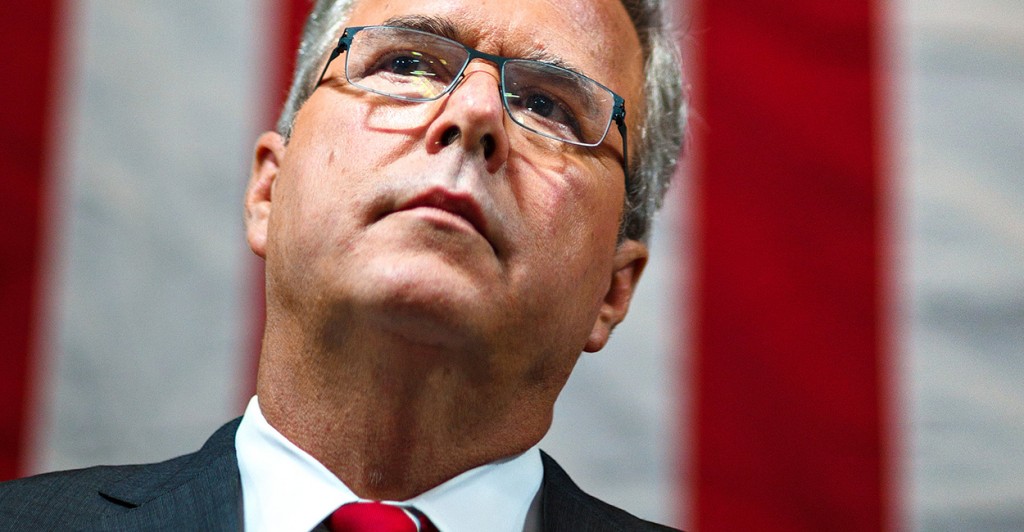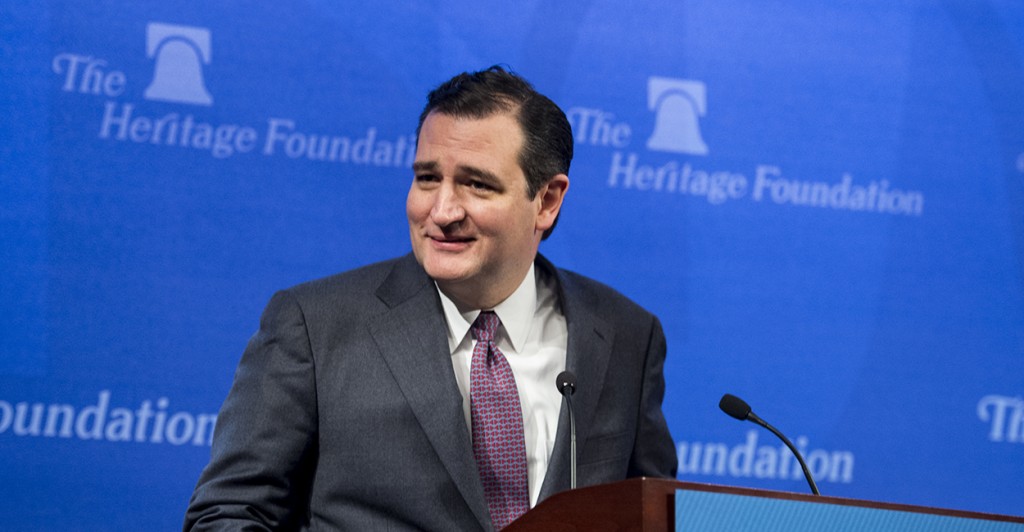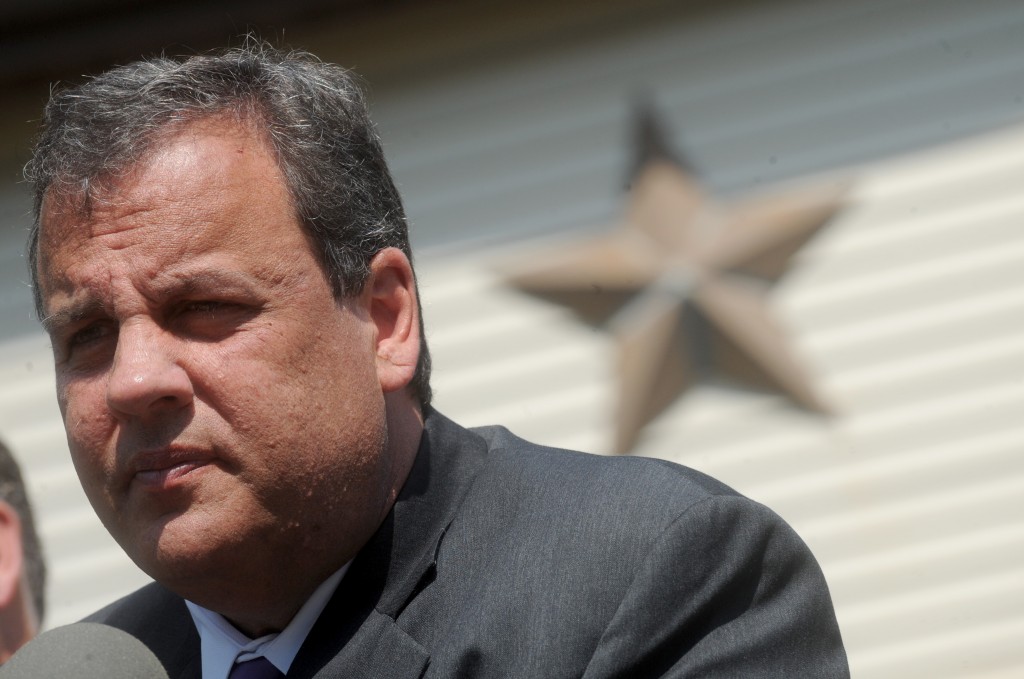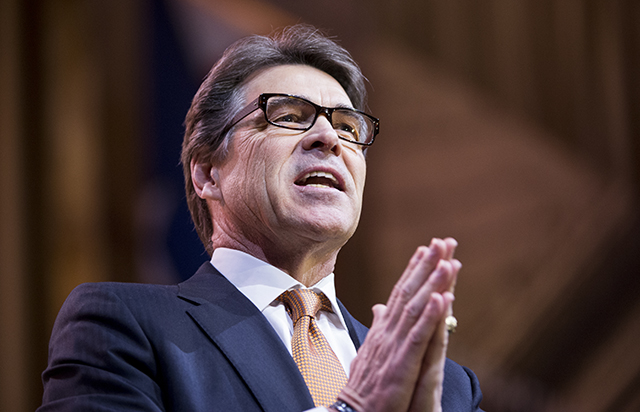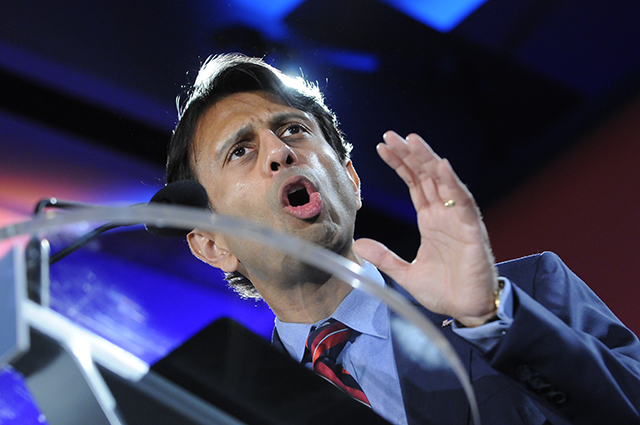As younger, first-time presidential hopefuls took turns suggesting why Mitt Romney shouldn’t run again, the 2012 Republican nominee kept courting potential campaign donors and advisers before concluding the first full week of his re-emergence with a speech to a gathering of party officials.
“I’m giving some serious consideration to the future,” Romney said in remarks Friday night to about 200 GOP leaders aboard the USS Midway Museum in San Diego harbor that capped the winter meeting of the Republican National Committee.
“We can win in 2016 as a party—in the House, the Senate and the White House—if we communicate a clear vision of where we’re taking this country and what we believe in,” he said.
>>> Flashes From the 2016 Trail
Should he make his third try for the White House, the former Massachusetts governor said, the campaign would focus on improving national security, expanding opportunity for the middle class and changing the lot of the poor.
“The results of the Hillary Clinton-Barack Obama foreign policy have been devastating,” Romney said, implicating the former secretary of state and Democratic presidential front-runner in troubles he cited in the Middle East, Africa, Europe, Asia and South America.
“Our party must stand for making the world safer, and our principles will do that,” he said. “And we have to make that point loud and clear.”
Romney’s late acceptance of the RNC’s invitation to speak followed a week of phone calls and meetings prompted by Jeb Bush’s own moves toward a bid for the presidency more than a year before votes are cast in the first intra-party contests.
Bush, the former Florida governor who is both brother and son to presidents, is scheduled to visit Washington, D.C., on Tuesday for meetings with possible campaign donors and officials.
No mainstream candidate on the Republican or Democratic side actually has announced, although the Romney camp indicated to Fox News and other outlets that Romney may make that move within four weeks.
“Some believe a path to Republican victory is to run to the mushy middle, to blur distinctions,” @TedCruz says.
Republican Chairman Reince Priebus, elected to a third term Friday, made good on a pledge to limit the number of Republican candidate debates this cycle.
The RNC released a schedule for at least nine debates and as many as 12, beginning in August in Ohio. The effort to whittle down the total came after the grinding sequence of two dozen GOP debates for the 2012 season was seen as detrimental to the party’s cause.
Other signs and portents from the trail in the past week:
Facing Down the Romney Threat
Two first-term senators with their own eyes on the White House—Ted Cruz of Texas and Rand Paul of Kentucky—questioned the wisdom of a third presidential campaign by Romney.
Cruz and Paul made their remarks, which also might well apply to Bush, after separate appearances at the Conservative Policy Summit sponsored by The Heritage Foundation’s lobbying affiliate, Heritage Action for America, at the think tank’s headquarters on Capitol Hill.
Cruz, 44, told reporters Monday that a successful candidate’s policy proposals will reflect conservatism’s “bold colors,” as did President Ronald Reagan’s, not the “pastels” of the “mushy middle.” Like-minded conservatives see Romney, 67, and Bush, 61, as occupying that space. Cruz said:
There are some who believe that a path to Republican victory is to run to the mushy middle, is to blur distinctions. I think recent history has shown us that’s not a path to success. It doesn’t work. It’s a failed electoral strategy.
In an exclusive on-camera interview Tuesday with The Daily Signal, Paul said the party can win by turning to someone new.
“I think he’s had his chance,” Paul, 52, said of Romney, “and I think it’s time for some fresh blood.”
Two other relatively young Republican lawmakers took themselves out of the running during the week, saying they would concentrate instead on new committee chairmanships.
Sen. John Thune, 54, of South Dakota, told Politico that he is looking forward to taking over the Senate Commerce Committee.
Rep. Paul Ryan, 44, of Wisconsin, Romney’s running mate in 2012, announced he intends to advance tax reforms as chairman of the House Ways and Means Committee.
Eyeing a return to the fray, however, is Rick Santorum, the former senator from Pennsylvania who won 11 state primaries and caucuses with a conservative economic and social message before Romney sewed up the nomination.
The Washington Post reported that Santorum, 56, intended to spend much of the weekend discussing another bid with supporters in a meeting in Scottsdale, Ariz., hosted by major donor Foster Friess. It followed a gathering Tuesday in Washington, D.C., with about 30 friends and advisers.
Following the Moves of 3 Governors
New Jersey Gov. Chris Christie, who delivered a State of the State address Tuesday that made room for an “American renewal” theme, later sought to come off as unruffled by others’ campaign preparations.
>>> Christie Looks Beyond Jersey With Swipe at Partisan Politics
Christie, 52, said in a radio interview Thursday:
What I’ve told everybody—supporters of mine, potential donors of mine, staff—is: ‘Relax.’ No one’s voting for another 12-and-a-half months.
One of Christie’s likely rivals, Sen. Marco Rubio of Florida, seemed plenty relaxed Tuesday as he alternately kidded and talked policy with Jon Stewart on “The Daily Show” while promoting his new book.
Two other governors, Rick Perry of Texas and Scott Walker of Wisconsin, also spoke at the RNC meeting in San Diego. Besides Romney, the only other potential presidential candidate to do so was Ben Carson, the celebrated Maryland neurosurgeon who has inspired tea party activists.
Walker, in both his remarks to party officials Thursday night and his State of the State address to state legislators in Madison two days earlier, talked about the need for “fresh” faces and ideas.
“Washington isn’t the place with the answers that we’re looking for. I think the states are where we get things done,” Walker, 47, told the GOP leaders. He added:
If we are going to be up against, particularly, Hillary Clinton, we have to offer a new, fresh approach, and ideally it is one that comes from the states.
>>> Ben Carson’s ISIS Remark Challenges Republicans, Goads Media
Walker underlined his three election wins in four years—including against a union-driven recall effort—in a swing state that has gone for Democratic presidential candidates ever since helping to re-elect Ronald Reagan in 1984. In another sign of his intentions, Walker recently hired Rick Wiley, a national political consultant with Wisconsin ties.
Perry, another of Romney’s GOP rivals in 2012, gave his farewell speech Thursday afternoon in Austin before the Texas Legislature. In remarks the next day to the RNC gathering, he spoke of the need for stronger American leadership on the world stage.
“What is on the ballot in 2016 is a choice whether we are going to … rise to the challenge of defending Western values,” Perry said, “or accept the decline of Western civilization because those who had the most to lose did the least to preserve freedom.”
>>> Jon Stewart Actually Likes Rubio’s Idea to Raise Wages, but …
Perry, 64, who will leave the governor’s office Tuesday after 14 years, also underlined his record of job creation and economic expansion in Texas:
Our formula for success is simple. Keep taxes low, implement smart regulations. You have an educated workforce. And stop lawsuit abuse at the courthouse.
Another Governor, Two More Former Ones
Louisiana Gov. Bobby Jindal, who hopes voters will view him as a fresh alternative in the Republican presidential field, sought to burnish both his experience overseas and his business and economic credentials last week with a trade trip to Europe.
In a speech prepared for an audience in London shortly after the Paris terror attacks by radicalized Muslims, Jindal—whose parents brought him to America from India—stressed the need for all immigrants to assimilate with the cultures of their new homes:
I am explicitly saying that it is completely reasonable for nations to discriminate between allowing people into their country who want to embrace their culture, or allowing people into their country who want to destroy their culture, or establish a separate culture within.
>>> 6 Hopefuls Use Twitter, Facebook to Share on Paris Terror
George Pataki, who knows something about melting pots after serving three terms as governor of New York from 1995 through 2006, said he is “very strongly inclined to run” for president after deciding against it the last two times.
“Washington is far worse,” Pataki, 69, told New Hampshire’s NH1 News. “It has grown way too powerful, too big, too intrusive, too expensive, and it just continues to try and dominate so many elements of the people’s lives in a way that I think is horribly wrong.”
Another former governor, Mike Huckabee of Arkansas, continues to ponder a second race for the White House. Huckabee, 59, has begun to promote a new book, out Tuesday, while doing so.
Huckabee and Romney were part of the 2008 GOP field vanquished by the eventual nominee, Sen. John McCain of Arizona—who went on to lose the general election to Barack Obama, a freshman Democratic senator from Illinois.
Campaign Hiring Hints
John Podesta, chief of staff during President Clinton’s second term, will leave his top job in the Obama White House in February for a principal role in Hillary Clinton’s expected campaign, Peter Nicholas of The Wall Street Journal first reported.
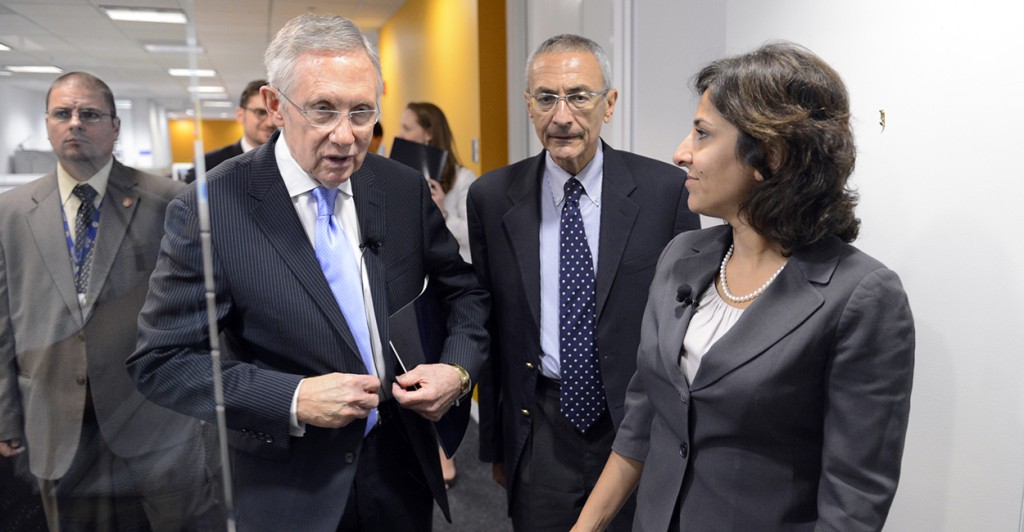
John Podesta, center, with Senate Majority Leader Harry Reid and Neera Tanden, president of the Center for American Progress, which Podesta founded. (Photo: Tom Williams/CQ Roll Call)
Paul, meanwhile, brought on veteran operative Chris LaCivita, known for the effective “swift boat” campaign against Democratic presidential nominee John Kerry in 2004, as a senior adviser. Paul also tapped Chip Englander, who managed Republican Bruce Rauner’s successful bid for Illinois governor, as another senior adviser in a role that could turn out to be campaign manager.
Carson brought on Iowa political expert Ryan Rhodes as his strategist in the state that holds the nation’s first presidential caucuses.
































